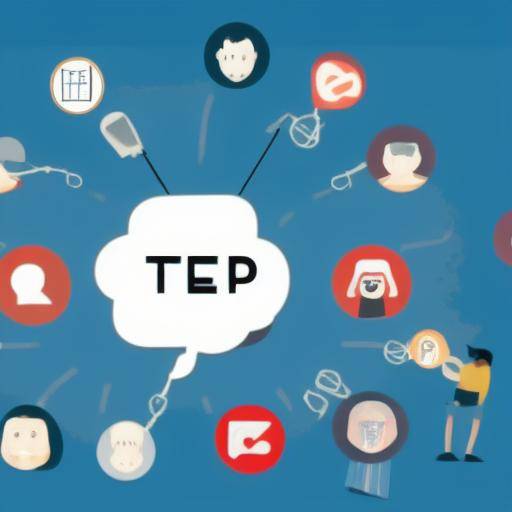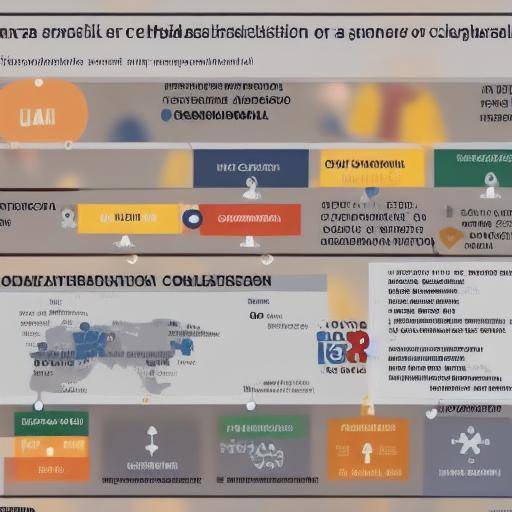
Conflict management is a fundamental aspect of social and business dynamics. Often, there is a need to resolve disputes efficiently and ethically to maintain healthy and productive relationships. In this article, we will explore in detail the crucial role of ethics in conflict management, as well as its impact on interpersonal relationships.
Introduction
Conflict management is a process that seeks to address differences between individuals or groups in a constructive manner, with the objective of achieving mutually beneficial results. In this context, ethics plays a vital role in providing an ethical framework that guides interactions and decisions during conflict resolution. Throughout this article, we will immerse ourselves in the importance of ethics in this process, its evolution over time, as well as its influence on interpersonal relationships.
History and Background
Conflict management and ethics have deep roots in the history of humanity. From tribal conflicts to disagreements in working environments, the need to resolve disputes ethically has been a constant challenge. Over the centuries, various ethical philosophies have influenced the way we address conflicts, from the morality of decisions to the fairness of dispute resolution. This historic evolution has laid the foundation for contemporary approaches to conflict management, marked by the ethical consideration of the parties involved.
Analysis in Deep
Management of ethical conflicts involves consideration of multiple factors, such as equity, justice, respect and transparency. In today ' s society, technological development and globalization have introduced new ethical challenges in conflict management. For example, conflict management in virtual environments requires a specific ethical approach to address the complexities of digital interaction. Through detailed analysis of actual cases and examples, we can better understand how ethical principles influence effective conflict management.
Comprehensive review
Within the business sphere, ethics plays a central role in the management of labour conflicts. The promotion of an ethical working environment fosters trust, job satisfaction and employee productivity. Transparency and integrity during conflict resolution not only strengthen interpersonal relationships in the workplace, but also contribute to the company's reputation and corporate image. By exploring best practices in managing ethical conflicts, we can identify effective strategies to address disputes fairly and ethically.
Comparative analysis
The relationship between ethics, conflict management and interpersonal relationships is intrinsic. The application of ethical principles in conflict management promotes the construction of healthy relationships, based on trust and mutual respect. In turn, strong interpersonal relations facilitate cooperative conflict resolution, where the parties involved seek equitable solutions rather than impose their own interests. By understanding the interconnections between these elements, we can develop comprehensive strategies to address conflicts ethically and constructively.
Practical Tips and Accessible Recommendations
In considering conflict management from an ethical perspective, it is crucial to integrate actionable practices and recommendations. Some practical councils include fostering open communication, fostering empathy, considering diverse perspectives and seeking solutions that respect fundamental ethical values. The implementation of these councils in real conflict resolution situations promotes a harmonious and constructive working environment.
Perceptions of Industry and Expert Reviews
The opinions of experts and industry leaders provide a deep insight into the influence of ethics on conflict management. Business leaders, human resources professionals and business ethics specialists offer valuable insights on best practices, current challenges and emerging trends in managing ethical conflicts. Integrating these perceptions into decision-making and the implementation of conflict management strategies can significantly enrich organizational ethics and interpersonal relationships in the working environment.
Case Studies and Practical Applications
Case studies provide concrete examples of successful implementation of ethics in conflict management in various contexts, from multinational corporations to non-governmental organizations. Detailed analysis of the strategies, results and lessons learned from these real cases offers a practical perspective on how ethics influences conflict resolution and the building of sound interpersonal relationships.
Future Trends and Predictions
In considering the future of managing ethical conflicts, it is vital to anticipate emerging trends and project possible scenarios. The growing complexity of labour relations, cultural diversity in working environments and the evolution of technology pose challenges and opportunities for ethics in conflict management. In anticipation of these trends, it can be prepared to address future ethical challenges and promote sustainable and equitable conflict management practices.
Conclusion
In short, ethics play an integral role in conflict management and in promoting healthy interpersonal relationships. By constantly considering ethical principles in addressing disagreements and disputes, organizations can cultivate an environment of trust, respect and collaboration. Management of ethical conflicts not only contributes to the stability and growth of organizations, but also has a positive impact on the well-being of those involved in such processes.
Frequently asked questions
What is the impact of managing ethical conflicts on labour productivity?
Management of ethical conflicts in the working environment promotes a climate of trust and collaboration, which in turn improves employee productivity. The fair and transparent resolution of disputes fosters a harmonious working environment and encourages the commitment and motivation of workers.
How can organizations promote an ethical culture in conflict management?
Organizations can promote ethical culture in conflict management through ethical conflict resolution training, clear and transparent policy implementation, and the promotion of exemplary leadership based on ethical values.
What is the impact of ethics on interpersonal relationships in the working environment?
The consideration of ethics in interpersonal relationships strengthens trust, respect and collaboration among members of an organization. Interpersonal relationships based on ethical principles contribute to a positive and productive working environment.
What ethical challenges arise in conflict management in virtual environments?
Conflict management in virtual environments poses ethical challenges related to effective communication, privacy and data security, as well as equity in remote decision-making. Ethical consideration is crucial to addressing these challenges in a fair and equitable manner.
How can business leaders foster ethics in conflict management?
Business leaders can promote ethics in conflict management by example, promoting transparency and integrity, and establishing policies that prioritize ethical dispute resolution.
What is the impact of the management of ethical conflicts on the corporate image?
Management of ethical conflicts has a significant impact on the corporate image of a company, as it shows its commitment to transparency, equity and respect. Ethical conflict management reflects solid values and contributes to a positive reputation in the market.
This extensive article has thoroughly explored the importance of ethics in conflict management and its impact on interpersonal relationships. By constantly considering ethical principles in addressing disputes, organizations can promote a healthy and collaborative working environment, while interpersonal relationships are strengthened on the basis of trust and mutual respect.















































